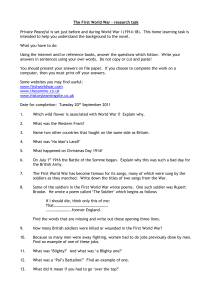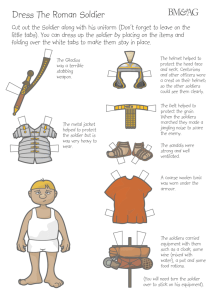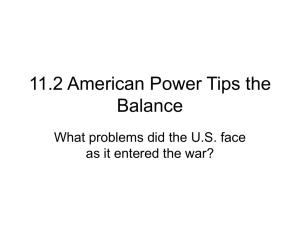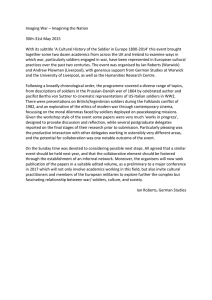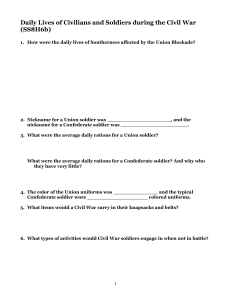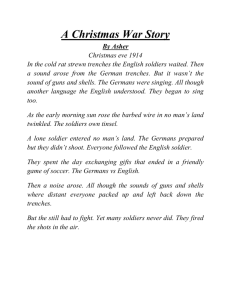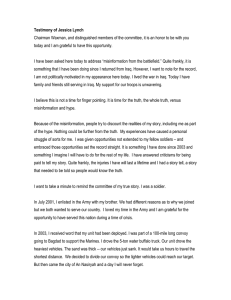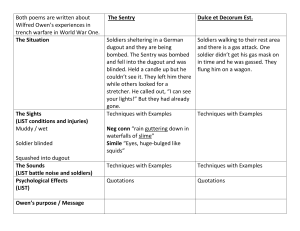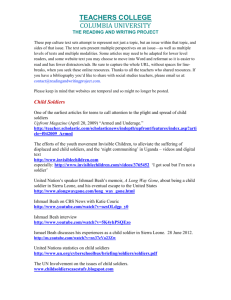Men at Arms: Soldiers and Soldiering
advertisement
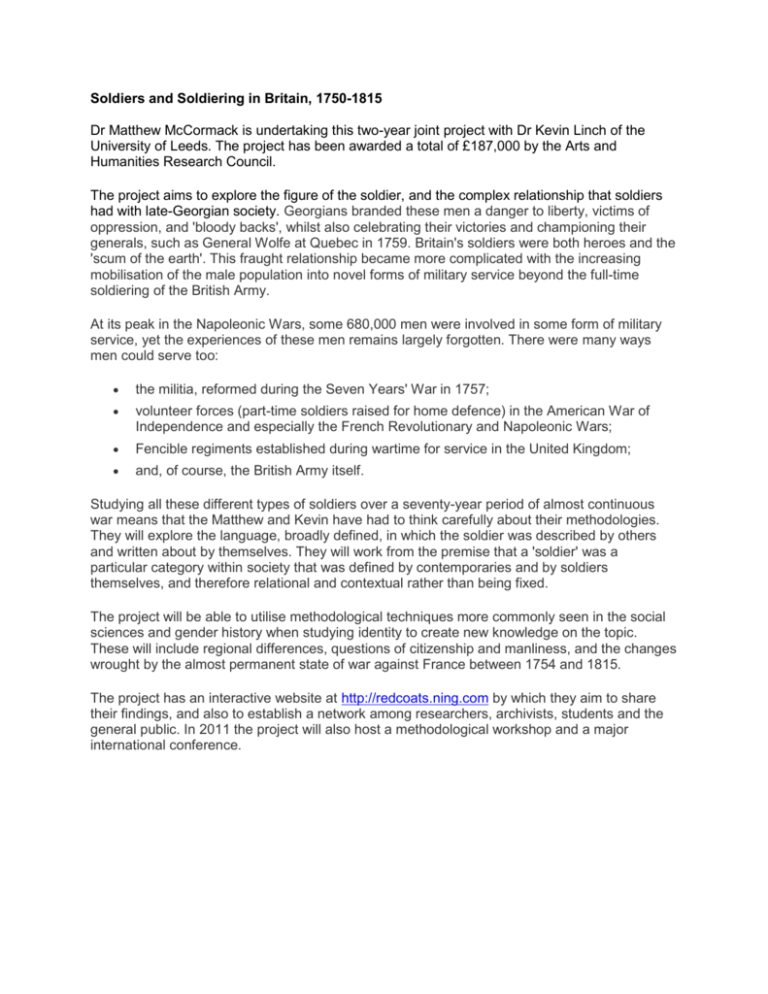
Soldiers and Soldiering in Britain, 1750-1815 Dr Matthew McCormack is undertaking this two-year joint project with Dr Kevin Linch of the University of Leeds. The project has been awarded a total of £187,000 by the Arts and Humanities Research Council. The project aims to explore the figure of the soldier, and the complex relationship that soldiers had with late-Georgian society. Georgians branded these men a danger to liberty, victims of oppression, and 'bloody backs', whilst also celebrating their victories and championing their generals, such as General Wolfe at Quebec in 1759. Britain's soldiers were both heroes and the 'scum of the earth'. This fraught relationship became more complicated with the increasing mobilisation of the male population into novel forms of military service beyond the full-time soldiering of the British Army. At its peak in the Napoleonic Wars, some 680,000 men were involved in some form of military service, yet the experiences of these men remains largely forgotten. There were many ways men could serve too: the militia, reformed during the Seven Years' War in 1757; volunteer forces (part-time soldiers raised for home defence) in the American War of Independence and especially the French Revolutionary and Napoleonic Wars; Fencible regiments established during wartime for service in the United Kingdom; and, of course, the British Army itself. Studying all these different types of soldiers over a seventy-year period of almost continuous war means that the Matthew and Kevin have had to think carefully about their methodologies. They will explore the language, broadly defined, in which the soldier was described by others and written about by themselves. They will work from the premise that a 'soldier' was a particular category within society that was defined by contemporaries and by soldiers themselves, and therefore relational and contextual rather than being fixed. The project will be able to utilise methodological techniques more commonly seen in the social sciences and gender history when studying identity to create new knowledge on the topic. These will include regional differences, questions of citizenship and manliness, and the changes wrought by the almost permanent state of war against France between 1754 and 1815. The project has an interactive website at http://redcoats.ning.com by which they aim to share their findings, and also to establish a network among researchers, archivists, students and the general public. In 2011 the project will also host a methodological workshop and a major international conference.

